2022 SAA Fellows and Award Recipients
The Society of American Archivists (SAA) honors the accomplishments and innovations of more than two dozen outstanding individuals and organizations at its virtual conference ARCHIVES*RECORDS 2022 on August 25–27. Award categories include outstanding contributions to the archives profession, superior advocacy and public awareness initiatives, writing and publishing excellence, and scholarships and travel awards.
Congratulations to the following 2022 recipients!
Archival Innovator Award: Center for Michigan Jewish Heritage
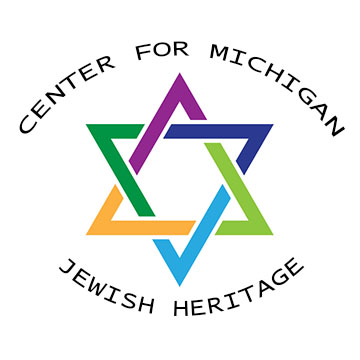
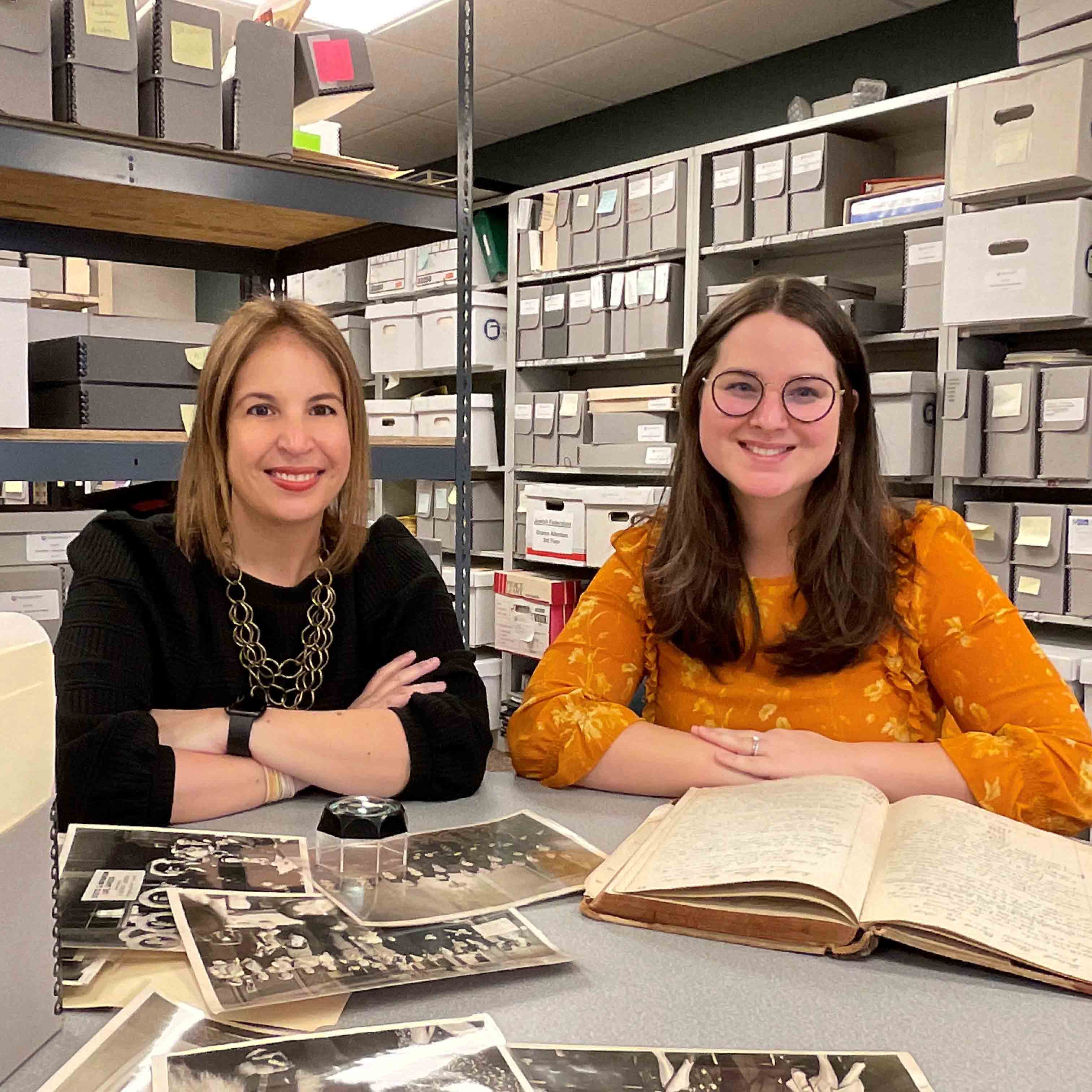
Laura Gottlieb, director of Cultural Resources at the Rabbi Leo M. Franklin Archives at Temple Beth El, and Robbie Terman, director of the Leonard N. Simons Jewish Community Archives of the Jewish Federation of Metropolitan Detroit, are the 2022 recipients of the Archival Innovator Award from the Society of American Archivists (SAA) for their work on the Center for Michigan Jewish Heritage in Bloomfield Hills, Michigan. The award recognizes archivists, repositories, or organizations that show creativity in approaching professional challenges or the ability to think outside the professional norm or that have an extraordinary impact on a community through archives programs and outreach.
Gottlieb and Terman, who work at similar institutions with similar histories, collections, and donor bases, realized the benefits of collaboration, and so the pair developed an innovative approach that increased access to their collections while keeping them legally separate. Under the umbrella of the Center for Michigan Jewish Heritage, Gottlieb and Terman have partnered on programs, joined their social media accounts, and, in 2021, combined their digital databases into one catalog of Michigan Jewish history. In Fall 2022, they will be combining into one physical space.
The collaborative model developed by Gottlieb and Terman demonstrates how two determined solo arrangers can navigate the sensitive waters of archival ownership by placing the collections and their impact on history first, while still respecting notions of ownership and stewardship in their respective organizations. The SAA Awards Committee was impressed by their perseverance and commitment to the shared work. In particular, Gottlieb and Terman have shown that innovation is not necessarily synonymous with a broad institutional scope and can succeed on a number of levels.
SAA’s Archival Innovator Award was established in 2012. This year, the Community-Driven Archives at Arizona State University is also a recipient of the Archival Innovator Award.
Archival Innovator Award: Community-Driven Archives Initiative at ASU
The Community-Driven Archives (CDA) Initiative at Arizona State University Library (ASU Library) is a 2022 recipient of the Archival Innovator Award from the Society of American Archivists (SAA). The award recognizes archivists, repositories, or organizations that show creativity in approaching professional challenges or the ability to think outside the professional norm or that have an extraordinary impact on a community through archives programs and outreach.
The CDA is the result of a concerted effort to broaden and deepen ASU’s engagement with its communities. The CDA initiative team, consisting of Nancy Godoy (Director of Community-Driven Archives [CDA] Initiative and Associate Archivist, ASU Library), Lorrie McAllister (Associate University Librarian for Collections Services and Analysis, ASU Library), Kenia Menchaca Lozano (Specialist, Community-Driven Archives [CDA] Initiative, ASU Library), Jessica Salow (Assistant Archivist of Black Collections, ASU Library), Alexander Soto (Director of Labriola National American Indian Data Center, ASU Library), and Alana Varner (Project Coordinator, Digital Borderlands Initiative, University of Arizona), is working to center the knowledge of community archivists who can preserve stories that otherwise would not be represented in the archives. The results of this initiative have created additional partnerships with marginalized communities, a greater focus on preserving BIPOC and LGBTQ+ voices, and three permanently funded positions in the archives, including an archivist of Black collections. It has also empowered ASU Library’s Labriola National American Indian Data Center to adopt and Indigenize CDA approaches for engagement with Tribal communities.
The CDA initiative team has accelerated meaningful change within ASU Library and continues to contribute to national social justice movements. This has occurred through a documentation strategy that centers historically marginalized communities and cultivates intersectionality in a way that not only enhances and diversifies the historical record, but also encourages members of these communities to create their own stories. The CDA’s impactful work provides a model to other organizations seeking to accomplish similar goals.
SAA’s Archival Innovator Award was established in 2012. This year, Laura Gottlieb and Robbie Terman are also recipients of the Archival Innovator Award for their work on the Center for Michigan Jewish Heritage.
Brenda S. Banks Travel Award: Polly Peralta
Polly Peralta, who has just completed a nine-month internship at the Museum of Pop Culture, is the 2022 recipient of the Brenda S. Banks Travel Award given by the Society of American Archivists (SAA). The award, which recognizes individuals of color who are employed in archives and who manifest an interest in becoming active members of SAA, provides assistance to attend the 2022 SAA Annual Meeting, held virtually and in-person in Boston on August 25–27.
Peralta holds a master of science in library and information science from San Jose State University and a bachelor of arts in music from San Francisco State University. She earned a certificate of advanced studies in archives and records administration from the University of Wisconsin–Milwaukee in 2021. Since her graduate studies, Peralta has been a digital projects manager at the V.E. Petrucci Library at California State University and an adjunct librarian at Clovis Community College. She has presented and written about viticulture and “grey literature collections,”—literature produced outside of traditional publishing and distribution channels—including a co-authored article in the Journal of Agricultural & Food Information.
In her personal statement, Peralta noted the importance of cultural representation in history and archives, saying it “helps us feel connected and not alone despite what other voices may say. ”At this year’s conference, Peralta will attend sessions and engage with colleagues on topics ranging from digital collections to cataloging. Peralta’s professional goals are to better serve researchers through inclusive descriptive practices and collection-building with communities that have been excluded from the broader historical record.
Created in 2017, the award honors SAA Fellow and Past President Brenda S. Banks, who co-founded the SAA Archivists and Archives of Color Section. Past recipients include Shelly Black (Cyma Rubin Library Fellow at North Carolina State University), Victor Betts (North Carolina State University's Special Collections Research Center), and Tracy Drake (Chicago Public Library’s Vivian G. Harsh Research Center).
C.F.W. Coker Award: "In Her Own Right" Project
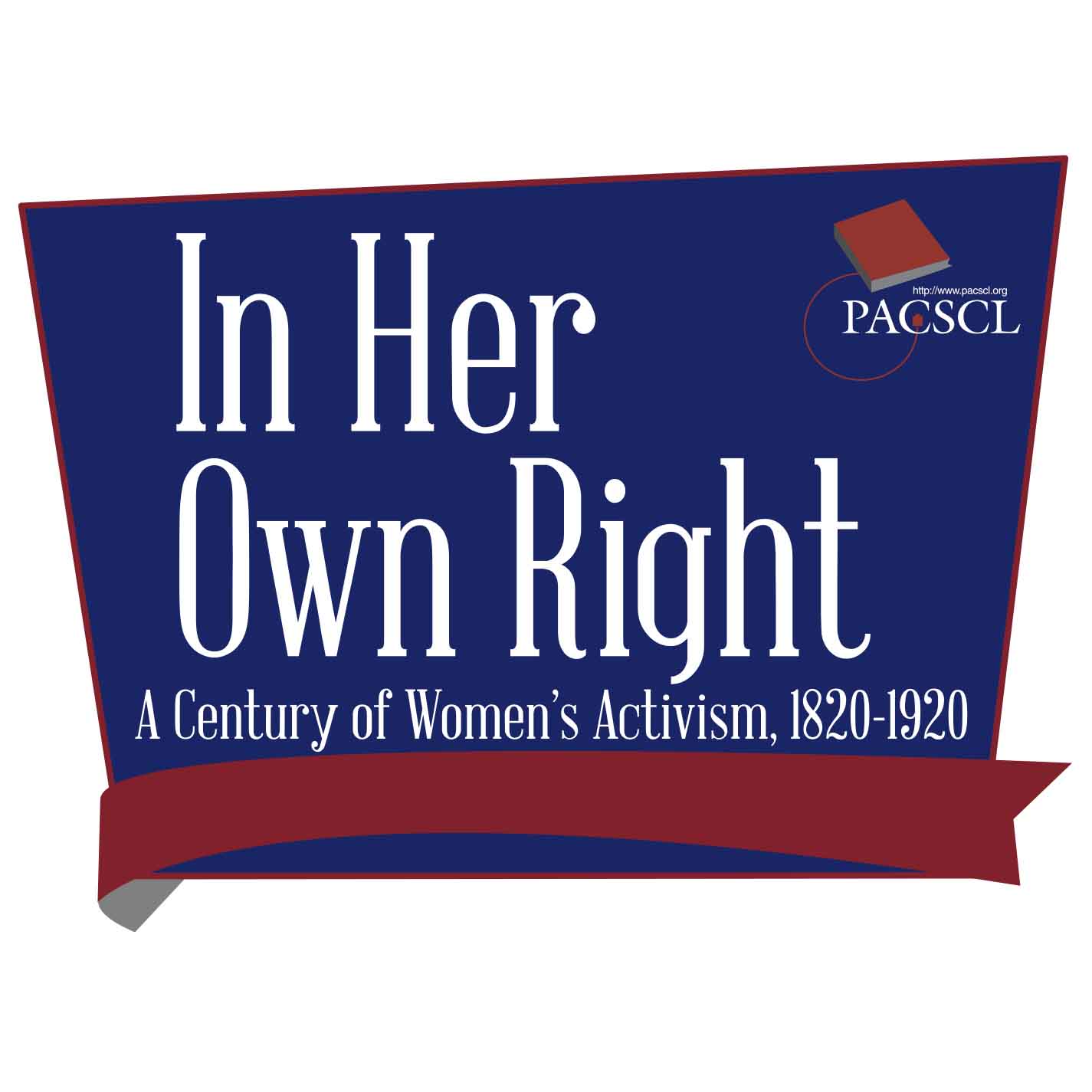
The “In Her Own Right” project, conducted by the Philadelphia Area Consortium of Special Collections Libraries, Inc. (PACSCL), is the 2022 recipient of the C.F.W. Coker Award from the Society of American Archivists (SAA). The award recognizes finding aids, finding aid systems, innovative development in archival description, or descriptive tools that enable archivists to produce more effective finding aids. To merit consideration for the award, nominees must set national standards, represent a model for archives description, or otherwise have a substantial impact on national descriptive practice.
The “In Her Own Right” project, completed in 2021, involved twenty-four partner institutions digitizing and describing manuscript and print materials from the nineteenth and early twentieth centuries leading up to the ratification of national women’s suffrage in 1920. The project included creating minimum metadata guidelines to support discovery while accommodating individual repositories’ systems and local practices. The metadata is set up so that if one institution contributes expanded metadata, other institutions may reuse or draw upon metadata for their contributions. Metadata can also be used through an API endpoint and via the Open Archives Initiative-Protocol for Metadata Harvesting (OAI-PMH). The “In Her Own Right” website hosting this metadata includes digitized primary sources, contextualizing essays, and digital exhibits about the history of women working for their and others’ rights leading up to suffrage in Philadelphia and beyond, and resources for K–12 students and teachers, including primary source sets. In addition to topically uniting a range of archival materials from disparate institutions, the project engaged more than 100 volunteers at metadata enhancement events.
This project is a notable example of innovative development in archival description. The website allows users to explore and learn about archival sources from several repositories, which was particularly beneficial during the COVID-19 pandemic when on-site access was limited. The project also serves as a model for other consortial projects wanting to develop metadata minimums that still allow for richer metadata when an institution has the resources to provide it.
Partner institutions involved in the “In Her Own Right” project include the African American Museum in Philadelphia; Alice Paul Institute; The Athenaeum of Philadelphia; Barbara Bates Center for the Study of the History of Nursing, University of Pennsylvania School of Nursing; Bryn Mawr College; Catholic Historical Research Center of the Archdiocese of Philadelphia; Chester County Archives and Record Services; Chester County History Center; College of Physicians of Philadelphia; Drexel University College of Medicine Legacy Center; German Society of Pennsylvania; Germantown Historical Society; Haverford College; Heritage Center of the Union League of Philadelphia; Historical Society of Pennsylvania; Library Company of Philadelphia; Moorland-Spingarn Research Center, Howard University; National Archives at Philadelphia; Presbyterian Historical Society; Swarthmore College Friends Historical Library; Swarthmore College Peace Collection; Temple University Libraries; United Lutheran Seminary; and the University of Delaware.
Established in 1984, the award honors SAA Fellow C.F.W. Coker.
Council Exemplary Service Award: Barbara Teague
Society of American Archivists
Council Exemplary Service Award
Honoring
BARBARA TEAGUE
WHEREAS Barbara Teague retired as Executive Director of the Council of State Archivists in June 2022 after four years of stewarding CoSA and working to bring SAA and CoSA together on issues of mutual concern; and
WHEREAS she retired as Kentucky State Archivist and Records Administrator in 2015 after serving the Kentucky Department for Libraries and Archives and the people of Kentucky for 32 years; and
WHEREAS she has been an active member of the archives profession for almost 40 years serving on numerous SAA and CoSA committees, working groups, boards, and initiatives; and
WHEREAS she has been a tireless advocate for archives including testifying before Congress in 2010 in support of the National Historical Publications and Records Commission, championing the 2018 “Archives on the Hill” effort that empowered 70 archivists from around the US to engage in advocacy with members of the US Senate and House, and supporting the never-ending effort to increase federal funding for archives; and
WHEREAS she has been the most gracious of colleagues, offering up her time, knowledge, and experience in support of archival professionals across the country;
NOW, THEREFORE, BE IT RESOLVED that Barbara Teague be honored with a 2022 Council Exemplary Service Award for being a dedicated and passionate archivist who has committed herself to our profession and advocated for government archives and records and the researchers who make use of them.
Present August 27, 2022.
Council Exemplary Service Award: Bryan Whitledge
Society of American Archivists
Council Exemplary Service Award
Honoring
BRYAN WHITLEDGE
WHEREAS Bryan Whitledge has served SAA as a member and now Chair of the Committee on Public Policy from 2018–2022; and
WHEREAS Bryan also serves as an ex-officio member of the Committee on Public Awareness; and
WHEREAS Bryan also serves as a member of the CoSA/NAGARA/RAAC/SAA Joint Working Group on Issues and Awareness; and
WHEREAS Bryan also serves SAA and its members as a liaison to the Policy Board of the National Coalition for History; and
WHEREAS Bryan actively encourages advocacy for archives and archivists through organized events such as National Humanities Advocacy Day; and
WHEREAS Bryan actively seeks out opportunities to raise SAA’s profile as an expert and essential organization to comment on national policy issues that impact archives and archivists; and
WHEREAS Bryan tirelessly educates SAA elected leadership on the nuances of advocating to elected officials, government agencies, and the public;
NOW, THEREFORE IT BE RESOLVED that Bryan Whitledge be honored with a 2022 Council Exemplary Service Award for his long-standing and passionate commitment to advocating for a better world for archives, archivists, and the public.
Present August 27, 2022.
Council Exemplary Service Award: The Intellectual Property Working Group
Society of American Archivists
Council Exemplary Service Award
Honoring
THE INTELLECTUAL PROPERTY WORKING GROUP
WHEREAS the Intellectual Property Working Group (IPWG) represents SAA on key litigation and resolutions related to intellectual property and copyright, as well as responding in a timely fashion to requests from SAA Council for background information and recommendations on these specific matters; and
WHEREAS they track intellectual property issues and news that could impact the archives profession and SAA membership. By staying informed, they provide expert advice and draft issue briefs and policy positions for SAA Council approval on possible papers, statements, and other documents relating to intellectual property; and
WHEREAS they bring to the attention of SAA Council the possible areas of fruitful collaboration with other organizations that are interested in intellectual property and, under SAA Council direction or with its approval, cooperate with such organizations to further SAA’s interests; and
WHEREAS members of IPWG regularly represent SAA at the World Intellectual Property Organization meetings, educating global policymakers about the vital role of archives and the need for special copyright exceptions for librarians and archives, ensuring that the profession’s perspectives are heard; and
WHEREAS the Intellectual Property Working Group has promoted intellectual property education among archivists; members of IPWG have in their individual capacity taught SAA workshops, authored SAA-published books, and assembled regularly to provide interesting panels and discussion at SAA Annual Meetings;
NOW, THEREFORE, BE IT RESOLVED that the Intellectual Property Working Group be honored with a 2022 SAA Council Exemplary Service Award for their outstanding contributions and representation to the Society’s involvement with intellectual property matters.
Present August 27, 2022.
Council Resolution: Career Development Subcommittee of the SAA Membership Committee
Society of American Archivists
Council Resolution
Honoring
CAREER DEVELOPMENT SUBCOMMITTEE OF THE
SAA MEMBERSHIP COMMITTEE
WHEREAS the Career Development Subcommittee of the SAA Membership Committee under the stewardship of Maggie Hoffman, Jenifer Monger, Brittany Newberry, and Samuel Alexander have created and maintained the SAA Career Services Commons; and
WHEREAS this group drafted and implemented a permanent online career portal for SAA members. Throughout the planning process for the 2020 Career Center, subcommittee members discussed whether the online Career Center might pave the way for a permanent resource for SAA members. Surveys sent to participants at the close of the 2020 Annual Meeting confirmed the subcommittee’s belief that a permanent, online version of the SAA Career Center would be a valuable resource for SAA’s membership; and
WHEREAS the SAA Commons offers the same services traditionally offered in person at the SAA Career Center but online throughout the year. Participants can choose from Career Advising sessions, Mock Interviews, or Resume Review sessions; and
WHEREAS rather than relying on the volunteer model used at the SAA Career Center, subcommittee members solicited a call for SAA Career Counselors who would commit to offering three hours per month for a one-year period;
NOW, THEREFORE, BE IT RESOLVED that the Career Development Subcommittee of the SAA Membership Committee be honored with a 2022 SAA Council Resolution for their effort in developing and sustaining the SAA Career Services Commons.
Presented August 27, 2022.
Council Resolution: Saving Ukrainian Cultural Heritage Online
Society of American Archivists
Council Resolution
Honoring
SAVING UKRAINIAN CULTURAL HERITAGE ONLINE
WHEREAS the Saving Ukrainian Cultural Heritage Online initiative was established in March 2022 by founders Quinn Dombrowski, Sebastian Majstorovic, and Anna Kijas, drawing together a global team of over 1,000 volunteer archivists, librarians, digital humanists, IT professionals, and others in partnership with Internet Archive, Harvard Ukrainian Research Institute, and the University of Alberta to rapidly archive Ukrainian cultural heritage on the internet during Russia’s invasion of Ukraine; and
WHEREAS this group self-assembled into a nimble yet skilled and robust team of experts in using web crawlers, curating metadata, conducting quality control, and leading outreach efforts; and
WHEREAS since the launch of this initiative, more than 5,000 websites and 50TB of data have been archived from Ukrainian cultural heritage institutions with the goal of digital repatriation after the war; and
WHEREAS this group established partnerships with the NFDI4Culture, National Library of Sweden, Society of Archives and Records Management in Sweden, and many more organizations to fund and supply digitization equipment directly to Ukrainian institutions; and
WHEREAS their work is exemplar of rapid disaster response archival action during the invasion of a sovereign country by an aggressor;
NOW, THEREFORE, BE IT RESOLVED that the Saving Ukrainian Cultural Heritage Online be honored with a 2022 SAA Council Resolution for their decisive and dedicated effort in saving the online cultural heritage of Ukraine.
Presented August 27, 2022.
Council Resolution: The Committee on Research, Data, and Assessment
Society of American Archivists
Council Resolution
Honoring
THE COMMITTEE ON RESEARCH, DATA, AND ASSESSMENT
WHEREAS the Committee on Research, Data, and Assessment was established in 2019 and principally charged to “provide access to significant and useful data and research about SAA, American archives, and their users that evidence the value of archives for society and help us improve our services to SAA members and to our consumers;” and
WHEREAS the Committee has published the Facts + Figure microsite which provides a conduit to data, resources, and tools to support archival advocacy efforts, assessment of archival impact, and research and innovation in the Society and archival profession; and
WHEREAS, in 2021, the Committee developed and launched the SAA Dataverse Repository for data created by the SAA community and allied organizations and individuals, in support of the “reuse of datasets for purposes of fostering knowledge, insights, and a deeper understanding of archival organizations, the status of archivists, and the impact of archives and archival work on the broader society;” and
WHEREAS the Committee has developed educational and outreach offerings and established collaborative relationships and initiatives to build and ensure sustainability of data, research, and assessment in the Society and archival profession; and
WHEREAS, in 2022, the Committee will embark on incorporating and managing the SAA Research Forum, that just celebrated its 16th year; and
WHEREAS the Committee, in support of Goal 3: Advancing the Field in the SAA Strategic Plan, has embarked upon producing a Research and Innovation Roadmap that will frame and inform future archival research, work, and scholarship;
NOW, THEREFORE, BE IT RESOLVED that the Committee on Research, Data, and Assessment be honored with a 2022 SAA Council Resolution for their work to advance research, innovation, data, and assessment in the Society.
Presented August 27, 2022.
Council Resolution: The Native American Archives Section
Society of American Archivists
Council Resolution
Honoring
THE NATIVE AMERICAN ARCHIVES SECTION
WHEREAS the Native American Archives section “serves as a forum to educate archivists on the complexities and beauty of Native American archives of the Western Hemisphere and as a source of communication and inspiration for archivists working with Native American collections;” and
WHEREAS this section was formed by member petition and approved by a unanimous vote of the Council on August 13, 2005; and
WHEREAS they work to keep their membership and the wider archives community informed of news, standards, resources, and issues related to Native American archives, archivists, and collections; and
WHEREAS in 2020 the section granted five scholarships to Native American and tribal archivists which provided both a one-year membership to SAA and registration at the 2020 Annual Meeting; and
WHEREAS in 2021 the steering committee (Diana Marsh, Selena Ortega-Chiolero, Rose Buchanan, Brian Carpenter, Samantha Meier, Rachel Menyuk, Lotus Norton-Wisla, Katherine Satriano, and Nathan Sowry) and volunteers (Vina Begay, Eric Hung, Liza Posas, Jonathan Pringle, Melissa Stoner) submitted extensive and thoughtful comments and feedback on the draft of the SAA Work Plan on Diversity, Equity, Inclusion, and Accessibility; and
WHEREAS they recommended to Council the creation of an Archival Repatriation Committee charged with ensuring "that the organization’s services, activities, policies, communications, and products support archivists in repatriating and receiving archival materials,” which was approved by a unanimous vote of the Council on May 18, 2022;
NOW, THEREFORE, BE IT RESOLVED that the Native American Archives Section be honored with a 2022 SAA Council Resolution for their work toward advocating for and supporting archivists working with Native American collections.
Presented August 27, 2022.
Distinguished Service Award: ChromaDiverse, Inc.
 ChromaDiverse, Inc., is the 2022 recipient of the Distinguished Service Award given by the Society of American Archivists (SAA). The award recognizes an archives institution, education program, nonprofit organization, or government organization that has given outstanding service to its public and has made an exemplary contribution to the archives profession.
ChromaDiverse, Inc., is the 2022 recipient of the Distinguished Service Award given by the Society of American Archivists (SAA). The award recognizes an archives institution, education program, nonprofit organization, or government organization that has given outstanding service to its public and has made an exemplary contribution to the archives profession.
ChromaDiverse is a nonprofit that offers software as a service to help performing arts organizations preserve, protect, and monetize their archival materials, including photos, videos, films, documents, press, posters, music, and playbills. Through their Smart Capture program, artificial intelligence (AI), and machine learning (ML), meta-data can be accurately harvested from printed performance programs—a task that is notoriously time-and labor-intensive. The data can then populate their Digital Vault, another offering by ChromaDiverse, making access to information seamless and powerful.
ChromaDiverse is singularly pioneering this technology, making it faster, better, and less expensive for all dance companies to create a living archive.
The SAA Awards Committee was impressed by ChromaDiverse’s outstanding service to the performance arts community by providing cost-effective solutions. The Company’s dedication to diversity protects multicultural arts groups from social and artistic erasure.
As Imogen Smith, director of Archiving and Preservation at Dance/USA, writes in her letter of support, “ChromaDiverse deserves recognition for their innovative approach to assisting dance and cultural organizations with preserving, organizing, and accessing their digital archives, and for their commitment to increasing equity by lowering barriers for access to archiving services and resources.”
ChromaDiverse’s cofounder and CEO, Judy Tyrus, received SAA’s 2021 Diversity Award, which recognizes outstanding contributions in advancing diversity within the archives profession, SAA, or the archival record. In 2022, she was appointed to serve on SAA’s Diversity Committee.
SAA’s Distinguished Service Award was established in 1964. Previous recipients include the Knox County Archives; Orange County Regional History Center in Orlando, Florida; the New England Archivists Mentoring Program; and the Council of State Archivists.
Diversity Award: Julie Varee
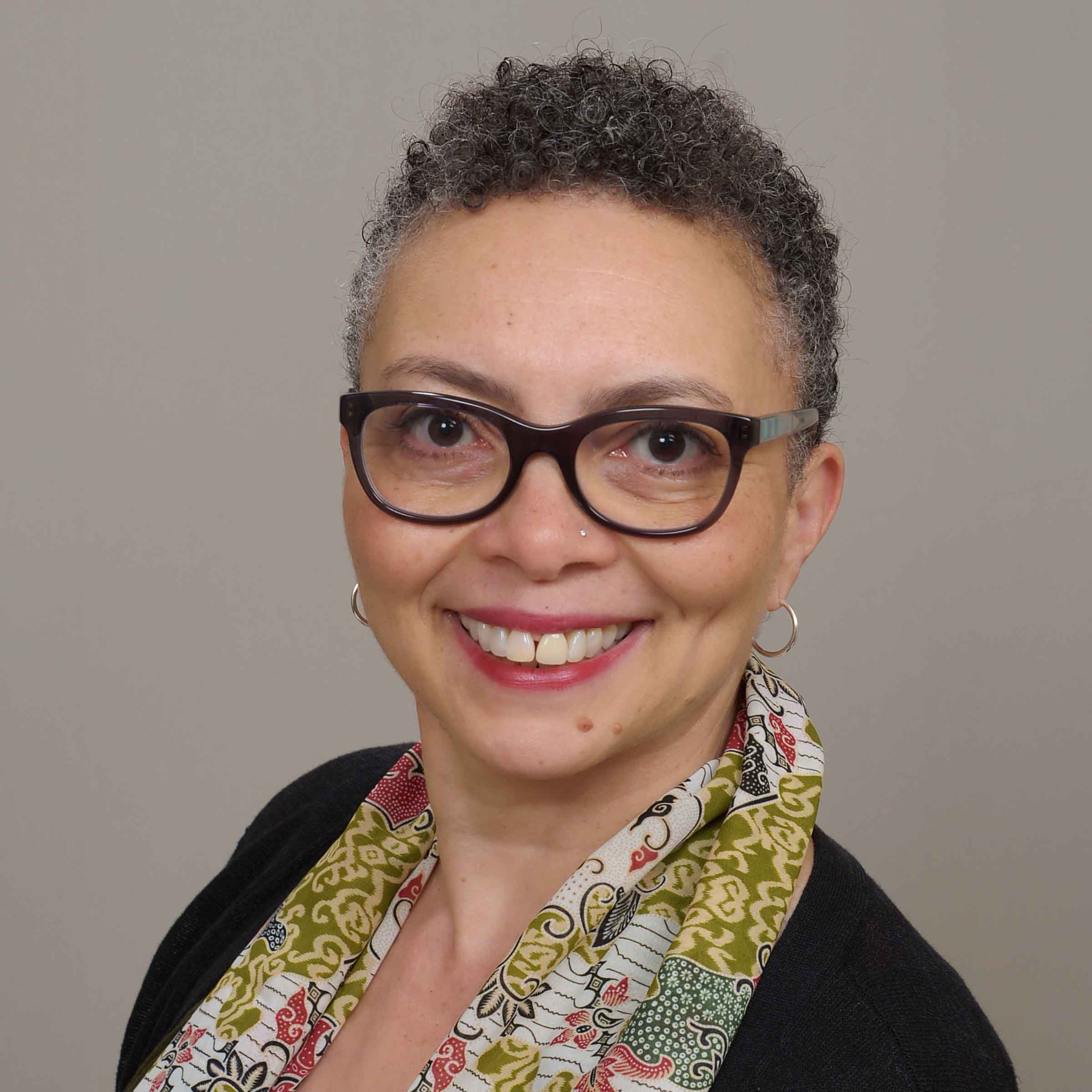 Julie Varee, the community outreach archivist at the Anchorage Museum in Alaska, is the 2022 recipient of the Diversity Award given by the Society of American Archivists (SAA). The award recognizes outstanding contributions in advancing diversity within the archives profession, SAA, or the archival record.
Julie Varee, the community outreach archivist at the Anchorage Museum in Alaska, is the 2022 recipient of the Diversity Award given by the Society of American Archivists (SAA). The award recognizes outstanding contributions in advancing diversity within the archives profession, SAA, or the archival record.
With more than thirty years of experience working with Alaskan community members, Varee brings a wealth of knowledge to her archival work. Varee has taken on a leadership role in the Anchorage Museum's diversity, equity, inclusion, and accessibility (DEIA) and anti-racism training programs. She spearheaded the creation of the new Black Lives in Alaska exhibition, which showcases the richness and resilience of Black lives in Alaska through archival photos and collected materials. In the past year, she has developed and supported programs with Filipino, LBGTQ+, Pacific Islander, and refugee/immigrant communities. She has also advocated for the inclusion of and emphasis on Black, Indigenous, and people of color (BIPOC) voices and stories within the archives, in exhibits, and on the museum’s social media. Having recognized the need to address the lack of diversity in the museum’s patrons, Varee undertook an assessment and analysis to improve visitor experiences. She acknowledged the need to create a space that can be used by everyone, not just academic researchers.
Varee also developed and promoted relationships with HistoryMakers, which collects oral histories of African American individuals from all fifty states. The Anchorage Museum became the first institution to acquire the physical archives of each of the eighteen Alaskan HistoryMakers. As noted by one of her nominators, “Julie is committed to surfacing, preserving, and highlighting stories that have too often been overlooked or marginalized. Her continued commitment to exploring a more robust, rich, and complicated history of who we are as a people, as a country, and as Alaskans is commendable and necessary work.”
The Diversity Award was established in 2011. Previous recipients include Judy Tyrus, SAA Fellow Rebecca Hankins, and the Puerto Rico Citizenship Archives Project.
Donald Peterson Student Travel Award: Katherine Schlesinger
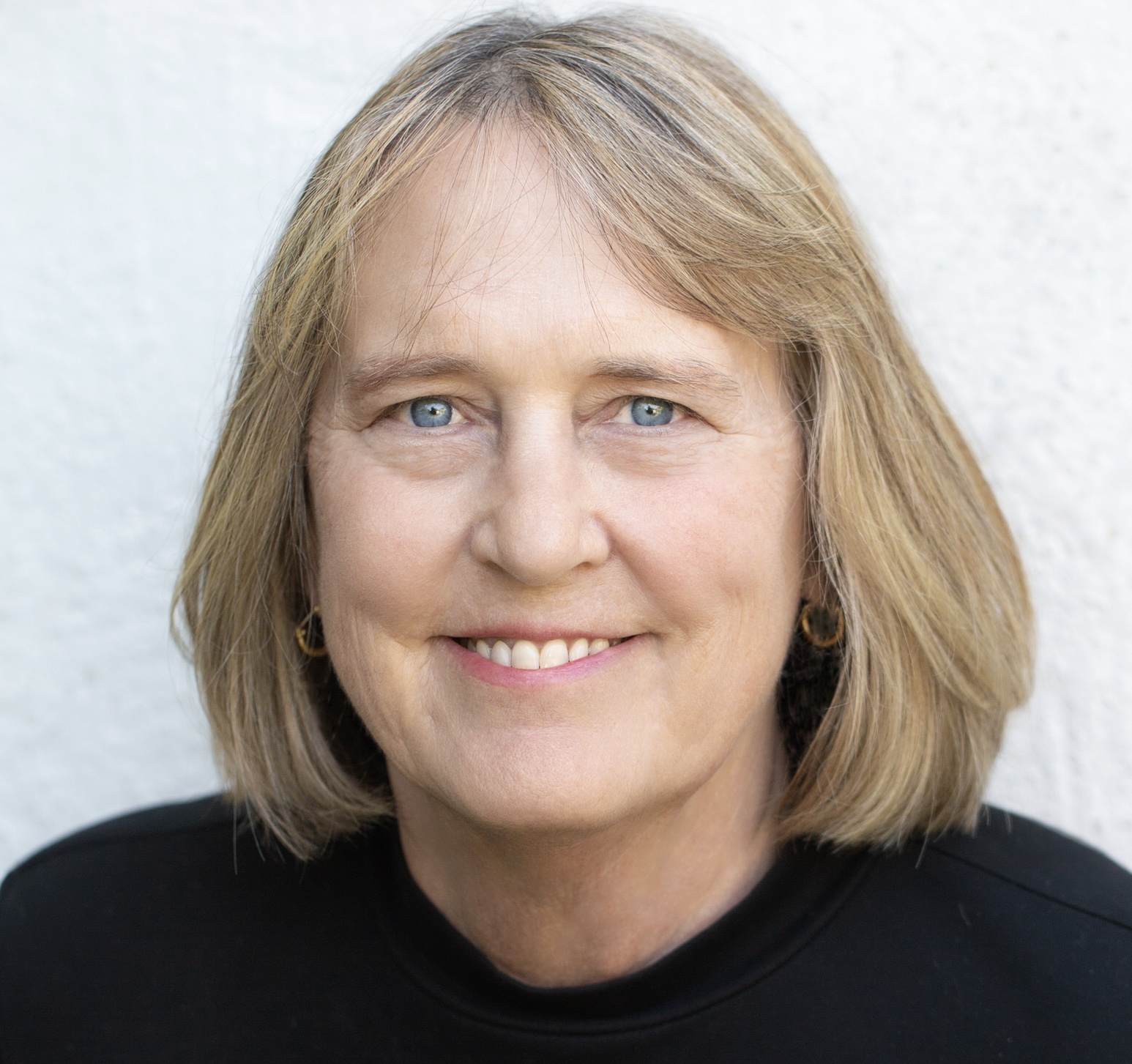
Katherine Schlesinger, who is pursuing a master’s in library and information science at the University of Arizona, is the 2022 recipient of the Donald Peterson Student Travel Award given by the Society of American Archivists (SAA). The award supports students and recent graduates from graduate archival programs within North America to attend SAA’s Annual Meeting. The goal of the scholarship is to stimulate greater participation in the activities of SAA, such as presenting research or actively participating in an SAA-sponsored committee or section.
Schlesinger previously worked as a translator for human rights organizations in Latin America, where she heard stories of victims of violent regimes. This work inspired the focus of her studies on trauma-related archival labor with the intention of bringing awareness through advocacy and research to the importance of recognizing emotional responses in archival work. Schlesinger has also examined archival trauma beyond the range of traditional “sensitive collections,” considering how collecting records from the COVID-19 pandemic presents potential risks of trauma to archivists, donors, and survivors.
One supporter writes: “Her contributions reveal an ability to examine issues with the potential for long-term impacts in our field of practice and in a larger social context.” At the 2022 SAA Annual Meeting, Schlesinger will be a co-participant in the session “Learning to Count and Code: Quantitative and Qualitative Research Needs for Archival Practitioners,” where she will present preliminary findings from her graduate independent research project, “Trauma-Informed Archival Labor and MLIS Curricula.”
The Donald Peterson Student Travel Award was established in 2005 and honors the memory of New York lawyer and philatelist Donald Peterson. Past recipients include Sidney Loui (University of Hawai’i at Manoa), Jeanie Pai (Queens College), and Alexis Recto (University of California, Los Angeles).
F. Gerald Ham and Elsie Ham Scholarship: Sarah Shepherd
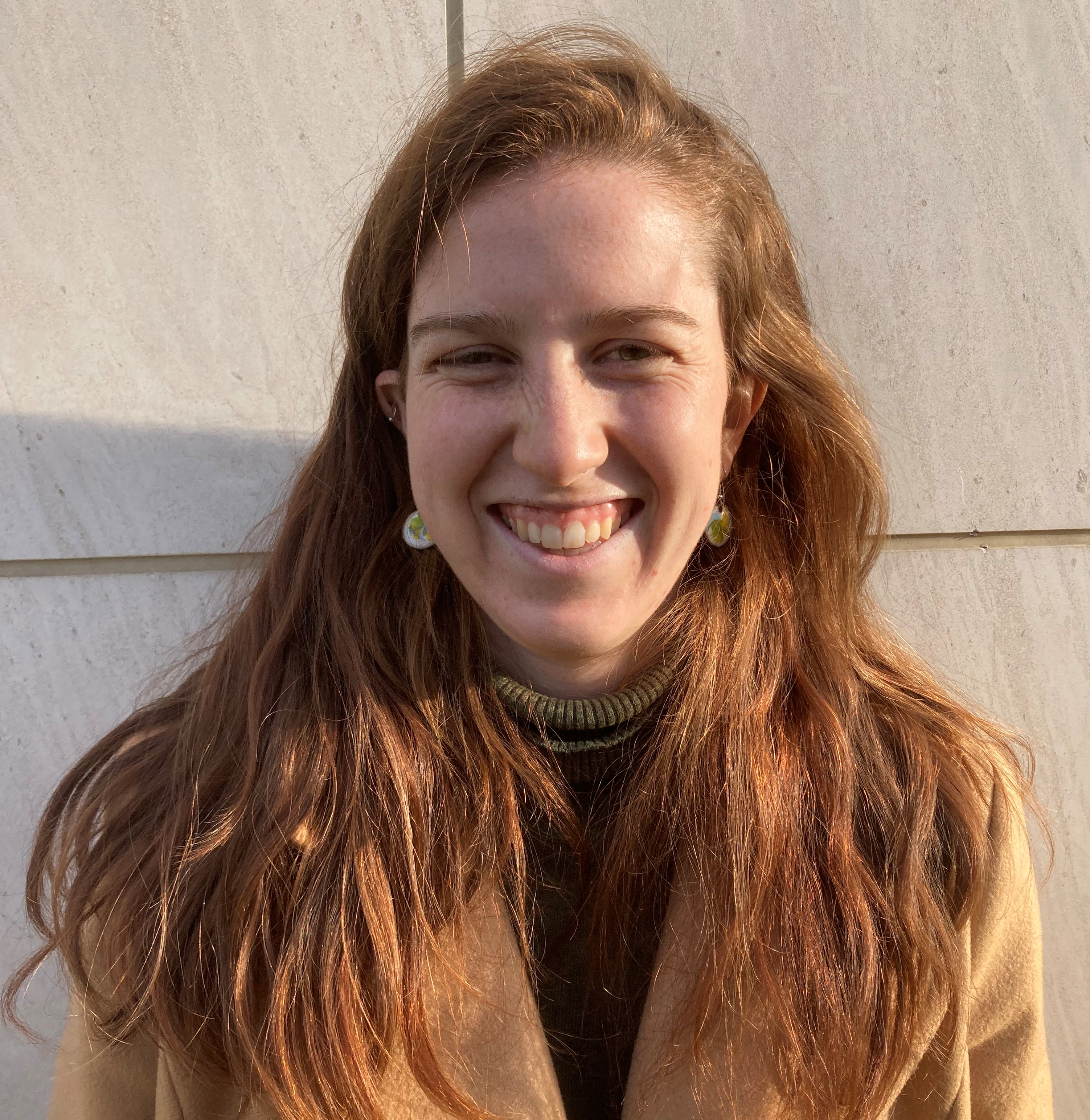
Sarah Shepherd, who is pursuing dual master’s degrees in archives management and history at Simmons University in Boston, is the 2022 recipient of the F. Gerald Ham and Elsie Ham Scholarship given by the Society of American Archivists (SAA). The $10,000 scholarship supports the graduate archival education of a student who is studying at a United States university program. Scholarship selection criteria include the applicant’s past performance in their graduate program in archival studies as well as faculty members’ assessment of the student’s prospects for contributing to the archives profession.
In her application essay, “Building Partnerships and Reckoning with Historic Oppression: The Radical Potential of a Small Rural Archives,” Shepherd discusses her time working at the Greenbrier Historical Society in Lewisburg, West Virginia. The historical society manages the North House Museum, as well as a small archives, but both museum and archives privileged the history of wealthy white men. During Shepherd’s tenure, she made the archives more searchable and vastly increased the number of Black voices in the different collections, telling a more complex story about the area’s history. She built relationships with local Black communities, engaging them in building collections, programs, and exhibitions, and making space for them to tell their stories. In her essay, she also examines her white privilege and initial reluctance to talk about race and her culpability in racial oppression. She argues that white archivists must find the strength to address and take responsibility for all our history.
In addition to her work with the Greenbrier Historical Society, Shepherd’s faculty nominator noted that she is an outstanding student. Her goal is to become a reference archivist and continue to utilize her leadership to build trust and partnerships with historically underserved populations by “pursuing change one interaction at a time.”
This scholarship was created in 1998 by SAA Fellow, past president, and longtime member F. Gerald Ham and his wife Elsie.
Fellow: Dr. Emilie Gagnet Leumas
Dr. Emilie Gagnet Leumas, archives/records management consultant with EGL Consultants, LLC and adjunct instructor at Louisiana State University, will be inducted as a Fellow of the Society of American Archivists (SAA) during a ceremony at the SAA Annual Meeting. The distinction of Fellow is the highest honor bestowed on individuals by SAA and is awarded for outstanding contributions to the archives profession.
An influential leader in religious archives, disaster preparedness, and the international archival community, Gagnet Leumas earned a doctorate in French studies from Louisiana State University and began her archival career as an assistant archivist and researcher at the Diocese of Baton Rouge, Louisiana. After three years, she was promoted to archivist and began managing the overall archives program and establishing a records management program, including setting up an electronic document management system. In 2007, Gagnet Leumas became director of archives and records at the Archdiocese of New Orleans, where she built a best-in-class archives and records program, coordinated a major move to a new archives facility, and curated six significant exhibits before retiring in 2021 to consult and teach. Currently, Gagnet Leumas consults with smaller Catholic dioceses and nonprofit organizations, helping them establish and improve their records management and archives programs.
Gagnet Leumas has also shared her expertise through many publications and professional service. She has written extensively on managing religious archives, archival preservation in disaster situations, and Louisiana French culture, among other topics. She coauthored the essential text Managing Diocesan Archives and Records: A Guide for Bishops, Chancellors and Archivists. Within SAA, Gagnet Leumas has been an active participant and leader in several SAA component groups, including the Records Management Section, International Archival Affairs Section, Preservation Section, Women Archivists Section, the Awards Committee, and the Host Committee for the SAA Annual Meeting in New Orleans in 2013. She currently serves as chair of the International Council on Archives’ (ICA) Section on Faith Traditions, and as chair ICA’s Expert Group on Emergency Management and Disaster Preparedness.
In 2005, following Hurricane Katrina’s destruction in New Orleans, Gagnet Leumas stepped up to gather the necessary resources and volunteers, working diligently to help the Archdiocese of New Orleans and other archival institutions in the city respond and recover. She quickly became an expert in the field of disaster recovery, and in 2006 SAA recognized her outstanding work during Katrina recovery efforts with the Spotlight Award.
One of Gagnet Leumas’s supporters writes, “Emilie continues to provide a fount of knowledge and a whirlwind of support for archivists across the Louisiana region and beyond.” Another supporter notes that, in regards to her contributions to the Katrina recovery, “it is without question that her ability to garner resources, her managerial skills, her professionalism, and her love of New Orleans saved much of New Orleans’s historical primary sources.” In speaking of Gagnet Leumas’s role in the archives profession, one recommender writes: “She is a powerful advocate for, and example of, the strengths and achievements of the American profession in general (and of SAA in particular) in the international archives and records management field.”
Gagnet Leumas is one of six new Fellows named in 2022. There are currently 195 Fellows of the Society of American Archivists.
Fellow: Edward “Ted” Ryan

Edward “Ted” Ryan, archives and heritage brand manager for the Ford Motor Company, will be inducted as a Fellow of the Society of American Archivists (SAA) during a ceremony at the SAA Annual Meeting. The distinction of Fellow is the highest honor bestowed on individuals by SAA and is awarded for outstanding contributions to the archives profession.
An innovative and resourceful thinker, Ryan earned his bachelor’s from Emory University and did extensive archival and historical classwork towards a master’s degree at Georgia State University before beginning his career at the Atlanta History Center. As manager of special projects, Ryan proposed a public/nonprofit collaboration between WPBA and the Atlanta History Center, resulting in the Emmy award-winning documentary Southern Bases. From there, Ryan established the Atlanta Braves Museum at Turner Field, curated the Bobby Jones Golf Collection, and created the Atlanta History Center’s first website. In 1997, Ryan began a twenty-one-year career with The Coca-Cola Company, culminating in his appointment as the archives director. There, he continued to pursue outside-the-box solutions and collaborations. He spearheaded efforts to donate the company’s body of advertising materials—consisting of more than 25,000 historical ads—to the Library of Congress. This program was so successful that he expanded it to the United Kingdom to donate materials to the British Film Institute. Ryan also launched a large art installation in 2015 at the High Museum of Art in Atlanta entitled “The Coca-Cola Bottle: An American Icon at 100,” as well as established two traveling exhibits which toured more than fifteen countries and were visited by hundreds of thousands of visitors. After twenty-one years with The Coca-Cola Company, Ryan became the archives and heritage brand manager for the Ford Motor Company, where he continues to use his resourceful thinking to position Ford’s heritage in modern and engaging ways.
As a corporate archivist, Ryan has contributed extensively to the archives profession through writing, leadership, and advocacy for business archives. He has written numerous articles for scholarly publications such as Provenance, the Journal of Digital Asset Management, and Business Archives: An International Comparison, as well as presented widely at events like the SAA Annual Meeting, the SAA Business Archives Section Colloquium, and the International Council on Archives Section for Business Archives meeting. In 2019, Ryan became the only archivist on the Darden Leadership Communication Council at the University of Virginia. He has served as a media liaison for The Coca-Cola Company and the Ford Motor Company, where he was the inspiration for the archivist character in the mockumentary John Bronco.
As a member of SAA since the early 1990s, Ryan has also helped to shape the Society and its members. He has attended nearly every SAA Annual Meeting since 1998, where he’s given a number of well-received presentations. He has chaired the Business Archives Section while simultaneously serving the larger SAA community as the liaison to the Association for Intelligent Information Management from 2005 to 2006. He began mentoring with SAA in 2017 and has worked with four mentees to date. One of his mentees writes how “Ryan helped me regain my confidence . . . to promote my team, my collection, and myself in this new world.”
Of Ryan, former archivist of the United States David S. Ferriero writes, “His research, writing, teaching, and speaking demonstrate his commitment to the profession—sharing his experience and expertise in the development of the next generation of corporate archivists. And Ryan’s media ‘performances’ shed new light on the role of archivists to the general public.” In reference to his dedication to SAA, another recommender adds, “Ryan’s work demonstrates not only commitment but also passion for the work of SAA. His stewardship, teaching, and celebration of corporate archives are unsurpassed and have served as a model for those coming into the profession, especially those in corporate archives and libraries.”
Ryan is one of six new Fellows named in 2022. There are currently 195 Fellows of the Society of American Archivists.
Fellow: Elizabeth Myers
Elizabeth “Beth” Myers, director of Special Collections at Smith College in Northampton, Massachusetts, will be inducted as a Fellow of the Society of American Archivists (SAA) during a ceremony at the SAA Annual Meeting. The distinction of Fellow is the highest honor bestowed on individuals by SAA and is awarded for outstanding contributions to the archives profession.
A dedicated archival advocate, collaborator, and mentor, Myers has held expanding leadership roles throughout her career. After earning an MA and PhD in United States history from Loyola University, Chicago, Myers became the director of the university’s Women and Leadership Archives in 2006. She provided archival services, oversaw graduate assistants and volunteers, and made significant technological improvements to the archives. In 2012, Myers moved to the Walter P. Reuther Library of Labor and Urban Affairs at Wayne State University, where she directed a staff of eighteen, oversaw the administrative integration of the archives into the libraries, and raised $140,000 through grants and gifts. In 2014, Myers became director of Special Collections at Smith College. She oversaw the merger of three special collections repositories, and individually and as part of a team raised more than $4 million to support operations, including a three-year Access to Collections project to make special collections materials more accessible.
In addition, Myers has a long history of mentorship and advocacy for her colleagues. For six years she served on the Archives Leadership Institute Steering Committee, where she mentored hundreds of participants with her unique combination of intelligence and humor. A sought-after presenter and educator, Myers has given dozens of presentations on archival management, collection development, women’s archival collections, and equitable hiring practices and compensation in the profession. Her talks demonstrate the depth of her thinking about archives and push archivists to take steps to make more diverse, inclusive, and equitable workplaces.
Within SAA, Myers chairs the working group for A*CENSUS II, a critical and nationwide survey, funded by the Institute of Museum and Library Services that will establish a baseline of information about archivists’ demographics, education, and professional development needs. The survey will inform decision making in the profession for years to come. In addition, Myers serves on the Board of the SAA Foundation, which provides funding to enhance the work of the archival profession, and works with the Development Committee to create new avenues of support for the Foundation. She previously served on the Steering Committee for the Women Archivists Roundtable and is a contributor the book Perspectives on Women’s Archives, edited by Tanya Zanish-Belcher and Anke Voss (SAA, 2013).
One of Myers’s supporters writes: “Her leadership of collections that focus on historically under-documented groups speaks to her commitment to social justice, as well as a rigorous dedication to the quality, depth, and variety of historical materials available, and a respect for the construction of a multidimensional and inclusive community memory.” Another adds: “Her contributions to our profession show initiative, resourcefulness, and commitment, and this is because she is a leader in our profession—a person who takes care of others and of the larger world.”
Myers is one of six new Fellows named in 2022. There are currently 195 Fellows of the Society of American Archivists.
Fellow: Kathryn M. Neal
Kathryn M. Neal, associate university archivist for The Bancroft Library at University of California (UC), Berkeley, will be inducted as a Fellow of the Society of American Archivists (SAA) during a ceremony at the SAA Annual Meeting. The distinction of Fellow is the highest honor bestowed on individuals by SAA and is awarded for outstanding contributions to the archives profession.
An advocate for diversity and inclusion in archival work, Neal has held archival positions primarily at universities. She received BA from Carleton College, a master of information and library studies from the University of Michigan, and an MA in journalism from the University of Minnesota. In 1995, Neal became the assistant archivist at the University of Iowa. There, she directed the African American Women in Iowa Project in the Iowa Women’s Archives, collecting the personal papers and organizational records of African American women with connections to Iowa. She then became the curator for the Givens Collection of African American Literature, based in Special Collections and Rare Books at the University of Minnesota, where she once more ensured a richer, more inclusive historical record by collecting and publicizing rare materials related to African American literary culture. Neal then moved to California for a position at San Diego State University. In 2005, she assumed her current role at UC Berkeley, where she has collected institutional records and faculty papers, assisted a broad spectrum of researchers, and co-curated several educational exhibitions.
In 1996, Neal wrote one of the first contemporary articles on diversity in archives, ”The Importance of Being Diverse: The Archival Profession and Minority Recruitment,” for the journal Archival Issues. The essay earned her the New Authors Award from the Midwest Archives Conference in 1999. Her scholarship not only elevates diversity but also demonstrates how to do the work of expanding documentation of underrepresented groups. She continued her advocacy for diverse representation when she co-edited with Mary Caldera the influential book Through the Looking Glass: A Reader on Diversity and Inclusion (SAA, 2014). The book was the 2017–2018 selection for SAA’s One Book, One Profession reading initiative and remains critical to conversations on diversifying the historical record, bringing archives to diverse communities, and supporting potential users. As one critic notes, “This seminal publication is still vitally important, and its impact will be seen long into the future.”
The first recipient of the Harold T. Pinkett Student Award in 1994, Neal has taken on responsibilities in a variety of component groups and committees within SAA, including chairing the Appointments Committee, Archivists and Archives of Color Section, Manuscript Repositories Section, Nominating and Brenda S. Banks Travel Award Committees; editing the Archivists and Archives of Color Section newsletter; and serving on Annual Meeting Program Committees. She served on the SAA Council from 2003 to 2006 and on the Editorial Board for American Archivist. Of their time together on the Council, one supporter writes, “Her contributions to the archival profession both inside and outside of SAA are extremely powerful, profound, and impact the Society to the current day.” Another recommender adds, “She not only is an expert in archival theory and practice but is also deeply aware of the societal and professional trends that impact our work.” Her co-editor Mary Caldera writes of working with Neal on Through the Looking Glass, “Neal was a wonderful collaborator. She worked to understand the vision for the publication and guide authors to better articulate their arguments.”
Neal is one of six new Fellows named in 2022. There are currently 195 Fellows of the Society of American Archivists.
Fellow: L. Rebecca Johnson Melvin
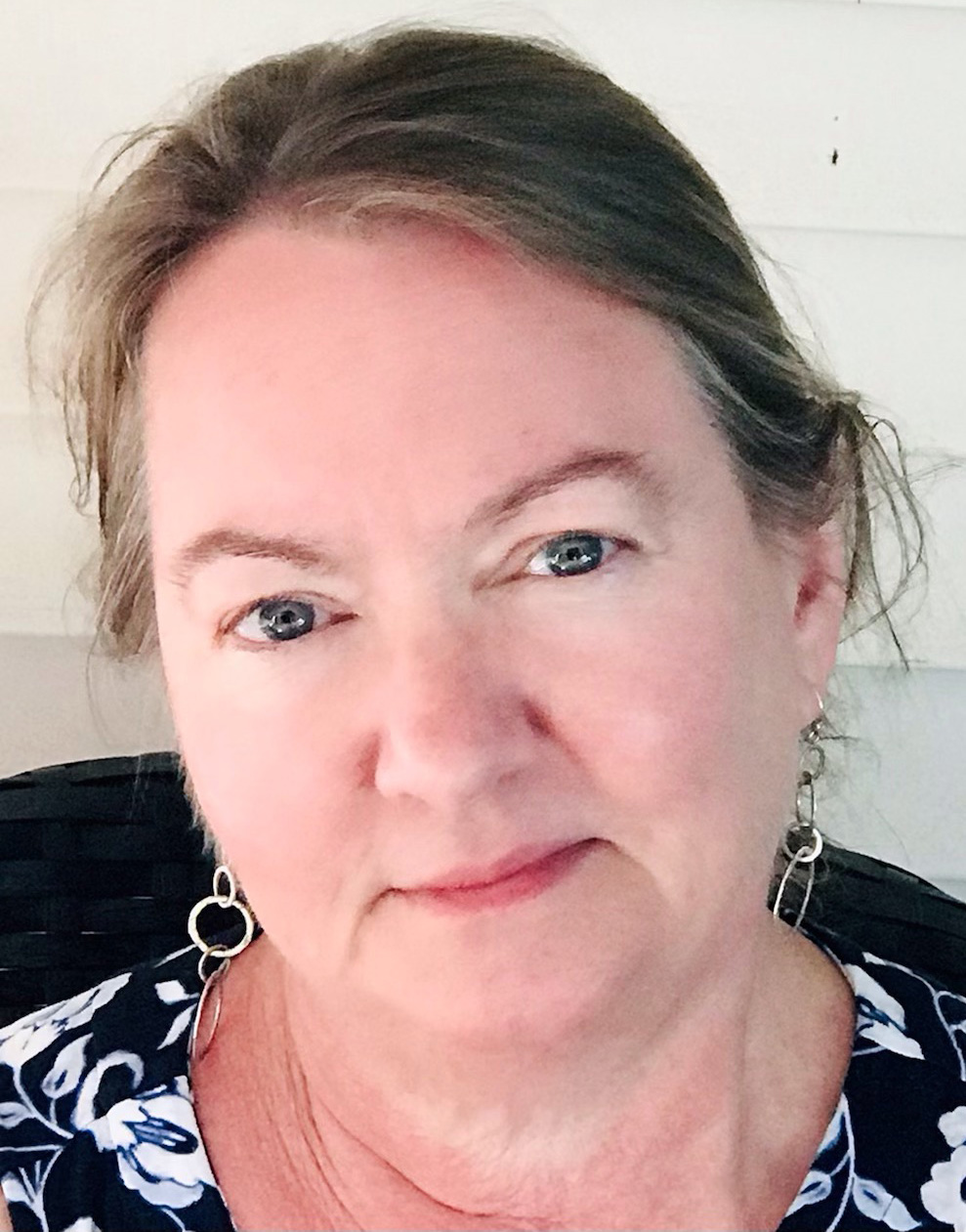
L. Rebecca Johnson Melvin, manuscripts librarian and curator of the Joseph R. Biden, Jr., senatorial papers at the University of Delaware, will be inducted as a Fellow of the Society of American Archivists (SAA) during a ceremony at the SAA Annual Meeting. The distinction of Fellow is the highest honor bestowed on individuals by SAA and is awarded for outstanding contributions to the archives profession.
An insightful educator, advocate for archival employees, and leader in the realm of congressional papers, Johnson Melvin’s work has crossed many boundaries, from archives to political science to library management. After completing a master of information and library studies from the University of Michigan, she began working in Special Collections at the University of Delaware, where she has held a variety of roles. For more than two decades, she has curated many exhibits, written widely on subjects within archives, and presented about archives multiple times a year. She was also co-editor with Karen D. Paul and Glenn R. Gray of An American Political Archives Reader, which received the SAA Waldo Gifford Leland Award in 2010.
Johnson Melvin’s continual mentorship and instruction has supported many members of the archival community and archives users. Johnson Melvin has made between six and nineteen visits to University of Delaware classes every year since 2006 and has taught on topics ranging from conservation in photographic works to gender studies to environmental politics. Her instruction is not limited to college students—she has also visited elementary and middle school classrooms to teach on primary sources and engage younger students with archives.
Her leadership is particularly evident in her work to elevate women’s history and role in archives. One notable effort was her recent collaboration with University of Delaware historian Anne Boylan to develop “Votes for Delaware Women,” an extensive online exploration of suffrage in the state. This collaboration earned Johnson Melvin and Boylan the prestigious Leab Exhibition Award from the American Libraries Association’s Rare Books and Manuscript Section in 2021. Within SAA, Johnson Melvin was selected as one of ten leaders to plan and moderate “Women’s Archives: What Does the Future Hold?”, which took place just prior to and in conjunction with the 2013 SAA Annual Meeting and for which she advocated for financial support to increase accessibility to the event. Additionally, she has been active in local historical and genealogical societies, serving as president of the Association of American University Women, Newark Branch, from 2008 to 2010.
Johnson Melvin has been an influential leader in SAA’s Congressional Papers Section. She has also been active in the Description Section, Manuscript Repositories Section, and Women’s Collections Section, serving on steering committees for all these groups. She designed SAA’s continuing education course “Managing Literary Manuscripts: Identification, Description, Preservation” in collaboration with Sue Hamburger. They taught the course in New Orleans, Texas A&M, and New York Public Library. When Johnson Melvin could not attend the course at the University of Utah, she provided extensive notes of best practices for keeping attendees engaged and learning.
In addition, after noticing the proliferation of temporary appointments for archivists in recent years, Johnson Melvin worked with fellow SAA members Sheridan Sayles and Amy Vo to design and conduct two comparative surveys: one for employees and one for employers of archival project positions. The team reported on their findings during the Mid-Atlantic Regional Archives Conference (MARAC) and SAA’s Research Forum in 2019. Johnson Melvin has persisted in her research past this initial survey, continuing to advocate for archivists in the workplace.
One of her supporters says, “At both the individual and collective levels, Johnson Melvin’s work has always been creative, generous, genuine, and humble.” Of Johnson Melvin’s expertise in congressional papers, one of her recommenders writes: “She has successfully expanded the universe of research use of congressional collections through outreach. It is not an exaggeration to say that, before her involvement, this was a community with little use for these wonderful and significant materials.” Another adds: “Johnson Melvin’s expertise is so highly regarded that most institutions that initiate a congressional papers collecting program typically begin the process by consulting her for advice and guidance.”
Johnson Melvin is one of six new Fellows named in 2022. There are currently 195 Fellows of the Society of American Archivists.
Fellow: Steven De’Juan Booth
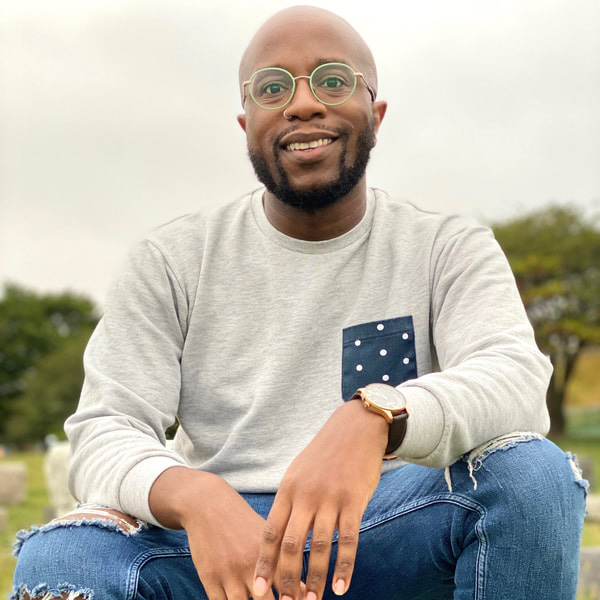
Steven De’Juan Booth, archivist for the Johnson Publishing Company Archive, will be inducted as a Fellow of the Society of American Archivists (SAA) during a ceremony at the SAA Annual Meeting. The distinction of Fellow is the highest honor bestowed on individuals by SAA and is awarded for outstanding contributions to the archives profession.
Booth’s varied archival career reflects his ongoing engagement of the public with archives, celebration of Black cultural heritage and community archives, and care for archivists and records creators. While earning his MS at Simmons College, he became a project archivist with the Howard Gotlieb Archival Research Center in Boston, where he processed the Martin Luther King, Jr., Papers. In 2009, Booth began working in the National Archives and Records Administration’s (NARA) Presidential Materials Division, where he processed the vice-presidential records of Al Gore and Dick Cheney, assisted with the mandatory declassification review of the Harry S. Truman presidential records, and created and served as the lead content editor for Archives.gov vice presidential records webpage. In 2017, he joined the archival staff of the Barack Obama Presidential Library, where he established and managed the archival program for the Obama audiovisual collection, which consists of 3.2 million born-digital photographs and more than 650 cubic feet of analog and digital video and audio recordings. Booth actively engaged the public with archives by contributing content to NARA blogs and social media and serving on the Library’s Electronic Records Working Group, Social Media Committee, and the Continuity of Operations Program team. In 2021, Booth became archivist/project manager for the Johnson Publishing Company Archive at the Getty Research Institute, where he oversees the archives of the publishing company, which published the popular magazines Ebony and Jet, as well as created the television show Ebony/Jet Showcase.
In addition, Booth is a cofounder and organizer of Blackivists, a collective of Black archivists who prioritize the preservation of Black cultural heritage in the Chicagoland area. He has presented widely on topics of importance to community-based archives for both archivists and the public. In 2020, in response to protests against police brutality and systemic racism, as well as documentation efforts around the COVID-19 pandemic, the Blackivists published “Five Tips for Organizers, Protestors, and Anyone Documenting Movements” and “Five Tips for Donating Your Materials,” with recommendations that prioritize the safety and agency of the people and communities involved.
An influential member of SAA, Booth has served on the SAA Council (2017-2020) as well as the Black Lives Matter Forum Planning Committee, the Statement on Diversity, Equity and Inclusion Review Committee, Appointments Committee, Nominating Committee, and Awards Committee, and in the Mentoring Program. In all these roles, he has shaped how the organization welcomes new members; advances diversity, equity, inclusion, and accessibility; and responds holistically to archivists’ needs. His contributions to the development and operation of the Archival Workers Emergency Fund (AWEF) provided support to 188 archival workers experiencing acute financial hardship due to the COVID-19 pandemic. Booth was acknowledged for his work both with AWEF and The Blackivists in two Council Resolutions in 2020.
One of his supporters writes that Booth “recognizes the powerful role that those who capture and preserve the history of communities that often go unnoticed can play. He equally challenges and inspires his colleagues to learn, collaborate, and excel in this noble mission.” In discussing the founding of Blackivists, one recommender remarks, “Booth demonstrates his ongoing commitment to an inclusive future for archives, archivists, and the people who benefit from them. In this and so much of his work, Booth has done so without a desire for the spotlight, quietly and persistently pursuing justice, equity, and transparency.”
Booth is one of six new Fellows named in 2022. There are currently 195 Fellows of the Society of American Archivists.
Fellows’ Ernst Posner Award: Eliot Wilczek
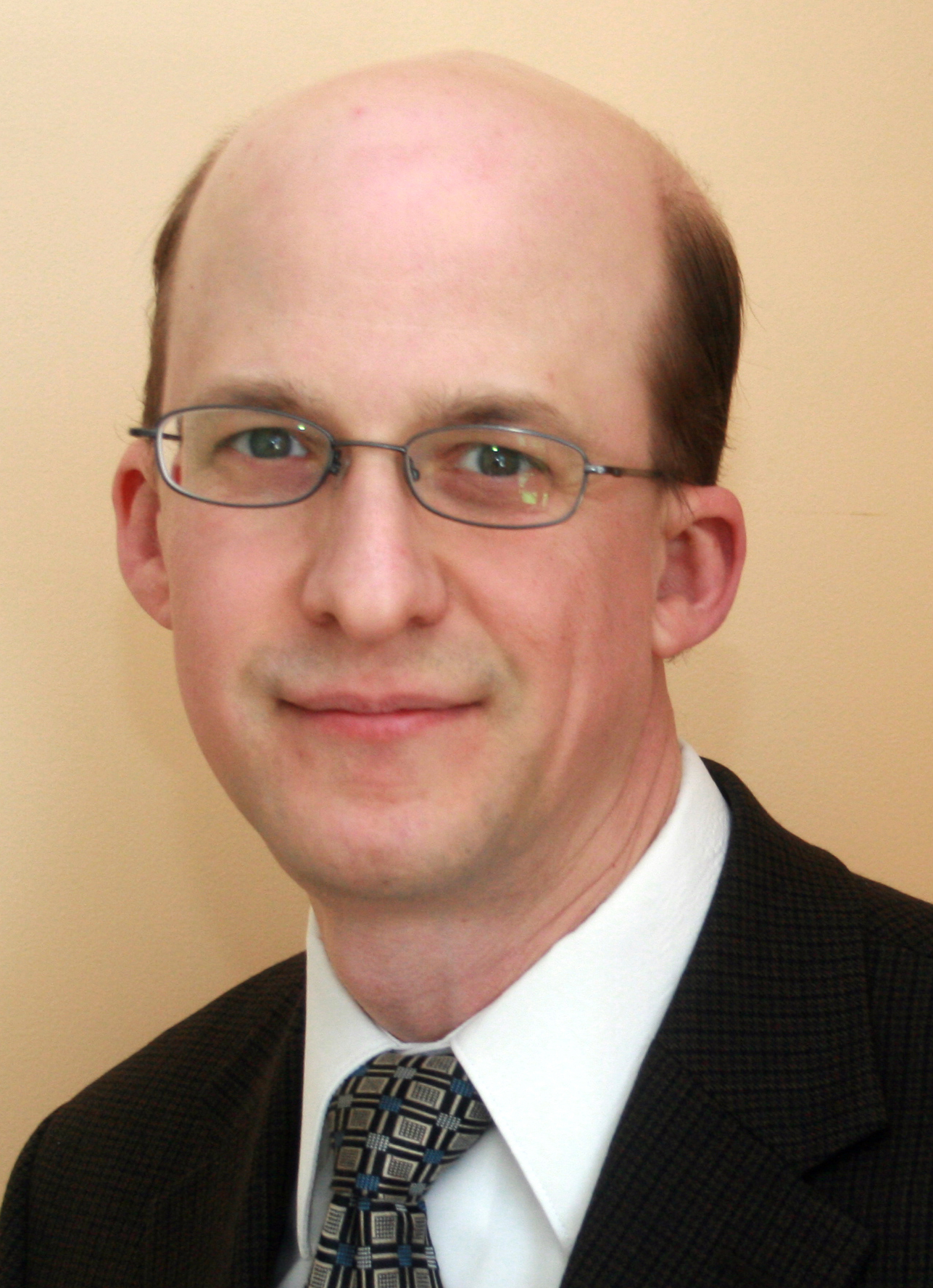
Eliot Wilczek, records and knowledge management engineer, is the 2022 recipient of the Fellows’ Ernst Posner Award given by the Society of American Archivists (SAA). The award recognizes an outstanding essay dealing with some facet of archival administration, history, theory, and/or methodology that was published during the preceding year in SAA’s journal, American Archivist.
Wilczek is being honored for “Archival Engagements with Wicked Problems,” which appeared in the Fall/Winter 2021 issue of American Archivist (vol. 84, no. 2). His article confronts the idea of “wicked problems” and examines the role of archives in them. Although the notion of wicked problems is not new, even in the archival profession, this article inspires broad thinking about the wicked problems archivists face as we engage with societal challenges. Documenting policing of underserved communities, refugees, child welfare, and climate change are just a few of the ideas the author explores while examining community engagement, records and recordkeeping systems, and archival theory and practice in the framework of wicked problems. Although archivists’ efforts are often modest, the author encourages archivists to "persistently strive to make the archival profession and surrounding communities better today than yesterday and better tomorrow than today."
Established in 1982, the award is named for Ernst Posner, an SAA Fellow and former president as well as a distinguished author.
Harold T. Pinkett Student of Color Award: Erin Castillo
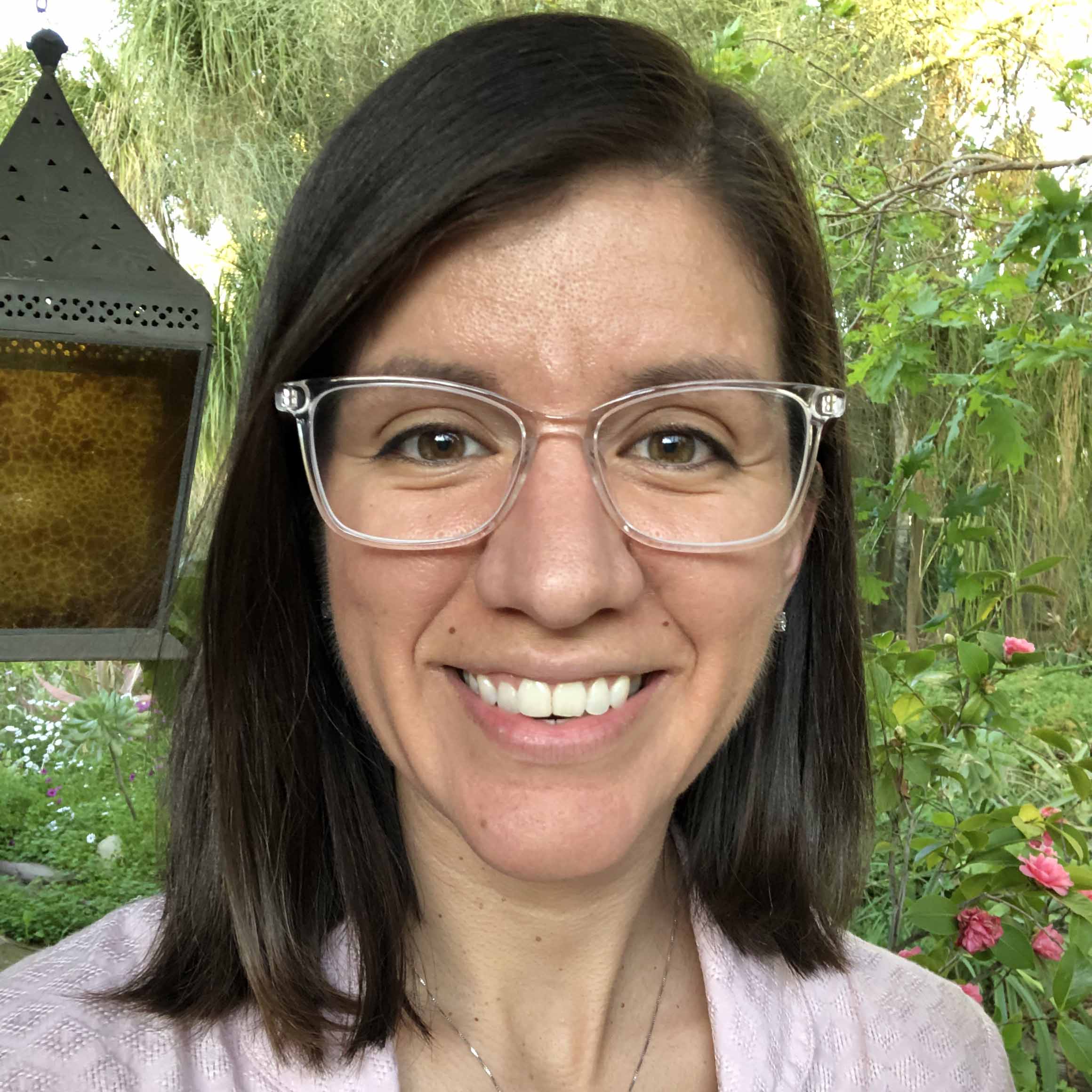
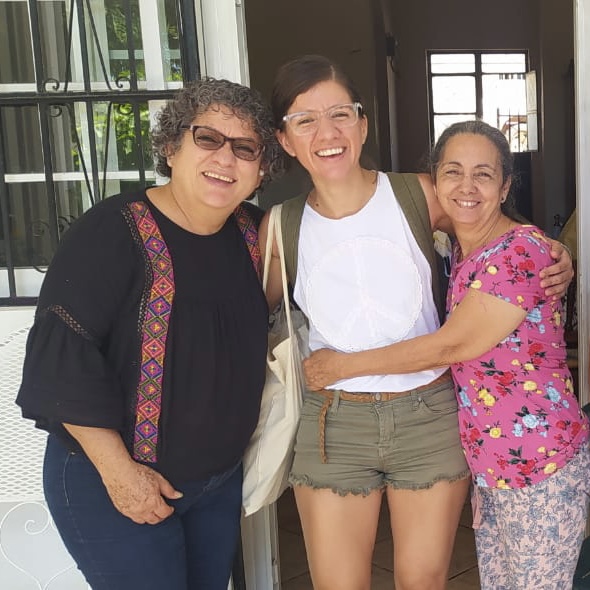
Erin Castillo, a graduate student in the Library and Information Science program at San Jose State University (SJSU), is the 2022 recipient of the Harold T. Pinkett Student of Color Award given by the Society of American Archivists (SAA). The award recognizes BIPOC graduate students who, through scholastic achievement, manifest an interest in becoming professional archivists and active members of SAA.
Castillo’s passion for documenting and preserving the histories of communities of color starts with her own family and a personal archival project called La Casa de los Abuelos (Our Grandparent’s House). La Casa de los Abuelos documents her family narrative of immigration to the United States and their roots in El Colomo, Mexico. Castillo notes that her interest in archives began with visits to her grandparents in El Colomo where she would find family relics and ask her aunts about their origins. Castillo writes: “With every visit to El Colomo, my love, admiration, and gratitude for my family and our humble origins grew.”
Castillo’s goal as an archivist is to expand La Casa de los Abuelos into a multigenerational library program and resource center for communities of color. She hopes to create a dedicated community archives where patrons can build, digitize, and maintain their family archives. One supporter commented on Castillo’s “passion and dedication to learn about archives.” Castillo says: “I hope to inspire communities of color to dive deeper into archives and feel love, admiration, and gratitude for their own histories.”
Established in 1993, the award honors the late Dr. Harold T. Pinkett, who served with distinction during his long tenure at the National Archives and Records Administration and who was a Fellow of SAA.
Josephine Forman Scholarship: Elias Larralde
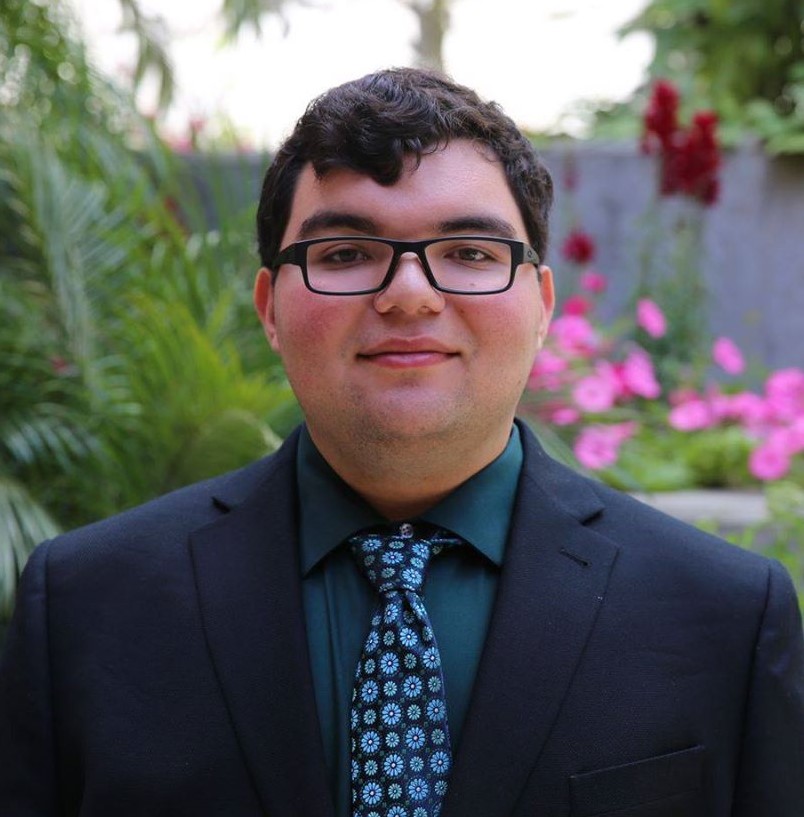
Elias Larralde is the 2022 recipient of the Josephine Forman Scholarship sponsored by the General Commission on Archives and History of the United Methodist Church, in cooperation with the Society of American Archivists (SAA). The $10,000 scholarship provides financial support to students of color pursuing graduate education in archival science, encourages students to pursue careers as archivists, and promotes the diversification of the American archives profession.
Larralde is pursuing a master’s degree in library and information science with a certificate in archival studies at the University of Arizona, where he works as a student archivist at the university’s Center for Creative Photography. He received his undergraduate degree from Florida State University (FSU). He previously interned at FSU’s Museum of Fine Arts and the Missouri Botanical Garden. In both internships, he worked with collections in curatorial roles, as well as explored how the greater public engages with archival materials. He also worked on FSU’s LGBT Oral History Project of North Florida (OHP), for which he developed contacts with and interviewed drag performers.
Larralde is passionate about increasing diverse and respectful representation of different communities and using metadata to ensure many entry points to an archives. His continued work with oral history participants after the end of his time at OHP demonstrates dedication to and an appreciation for his contributors. As one of his recommenders wrote, “To put his work in context, most students struggled to recruit the minimum number of oral history narrator-volunteers during a season of COVID-19 and contentious national politics. Elias excelled in recruiting more than the minimum, developing a social network among drag performers from the region who were interested in OHP, and fostering the enthusiastic participation of these performers.” The SAA Awards Committee was especially impressed by Larralde’s commitment to go above and beyond and look forward to future contributions.
The Josephine Forman Scholarship was established in 2010 and is named for Josephine Forman, who served as archivist for eighteen years at the Southwest Texas Conference of the United Methodist Church.
Mark A. Greene Emerging Leader Award: Sara Davis
Sara Davis, state archivist at Wyoming State Archives in Cheyenne, is the 2022 recipient of the Mark A. Greene Emerging Leader Award from the Society of American Archivists (SAA). The award celebrates and encourages early-career archivists who have completed archival work of broad merit, demonstrated significant promise of leadership, and performed commendable service to the archives profession.
Since her initial position as an archives intern at the Frederick Law Olmstead National Historic Site to her current role at the Wyoming State Archives, Davis has been a strong advocate for archival collections, users, and colleagues. At the State Archives, she successfully applied for a National Historic Public Records Commission grant to support a traveling archivist program to build a network connecting the state’s numerous cultural institutions. She effectively uses her role as a spokesperson for "people's history" for the state to preserve the voices of those not traditionally represented by the archives. For example, she established a community speakers’ bureau to communicate with members from underrepresented communities about the crucial role their records play in documenting Wyoming state history. With the institution’s recent acquisition of the Latin American Federation’s papers, these efforts are already bringing positive results.
Davis’s leadership is also evident in her previous work as a university archivist for the University of Wyoming at the American Heritage Center. Davis played an essential role in founding the institution’s Diversity Committee, as well as curating a digital and physical exhibit to commemorate Matthew Shepard, a gay student at the University of Wyoming who was murdered in 1998. Within SAA, she has led continuing archival education efforts as an active member, vice chair, and then chair of the Digital Archives Specialist (DAS) Education Subcommittee, where she reviews curriculum to ensure courses meet the needs of a growing number of archivists seeking to learn more about digital archives.
As her nominator writes, Davis’s “rapid growth from consultant to state archivist demonstrates her increasing responsibility, proven track record, and potential in the profession.” One former mentor writes that they “[look] to her as a guide and role model where we were once in opposite roles. I have watched Davis become an expert at whatever she takes on while leading with compassion and grace. She is clearly dedicated to and passionate about her work as an archivist.” A former supervisor adds that “Davis creates programs from scratch, sees projects successfully to completion, and ensures that every product is of high quality.”
Established in 2011 and renamed in 2017, the award honors SAA Fellow and Past President Mark A. Greene.
Mosaic Scholarship: Sean Payne
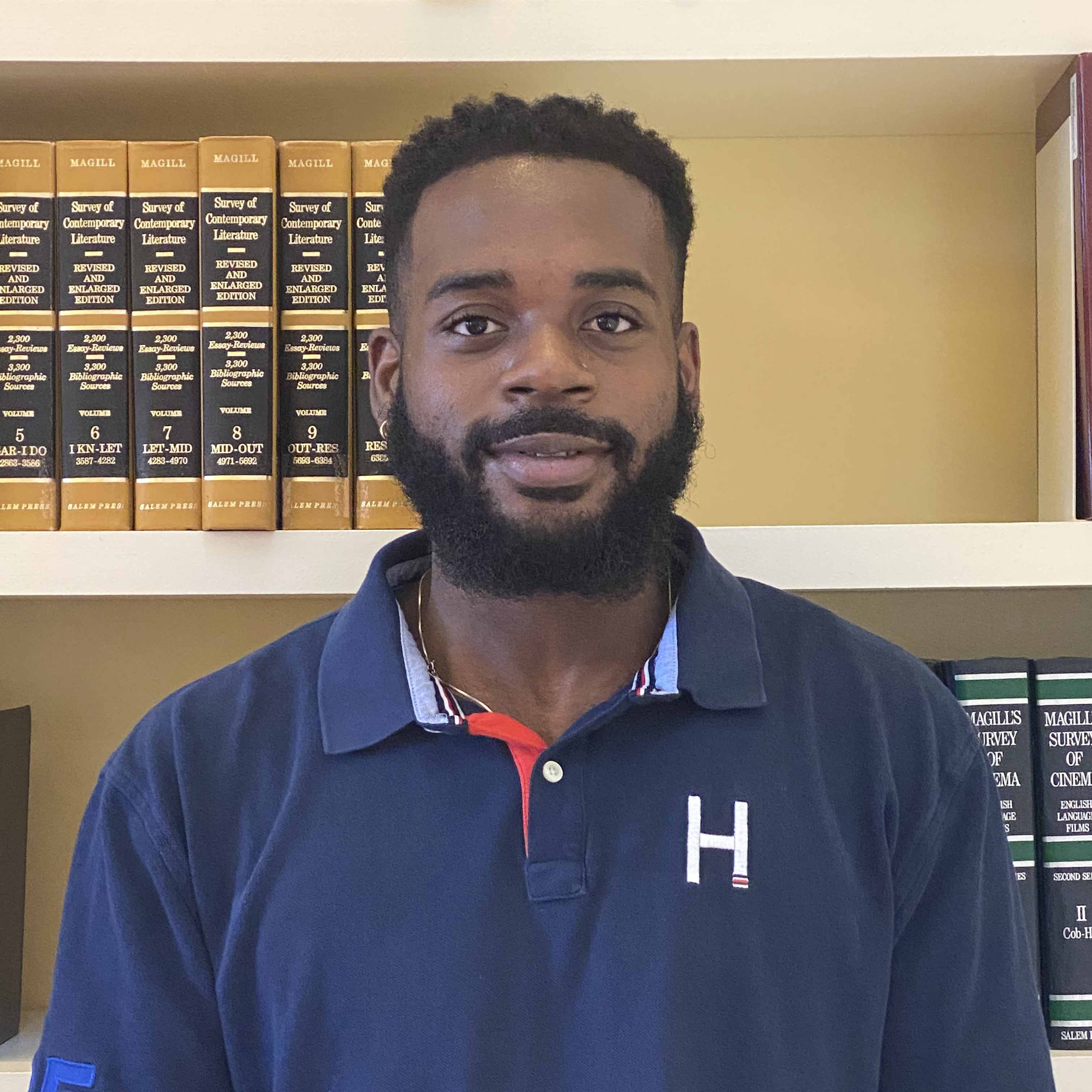
Sean Payne, who is pursuing a master of library and information science degree at Syracuse University in New York, is the 2022 recipient of the Mosaic Scholarship given by the Society of American Archivists (SAA). The $5,000 scholarship is given to a student who demonstrates potential for scholastic and personal achievement and who manifests a commitment both to the archival profession and to advancing diversity concerns within it.
Payne’s commitment to diversity in archives is evident in his desire to restructure how archives represent communities from non-Anglo-Saxon/Eurocentric populations and combat white supremacy and injustices in the archival profession. He strives to make visible the relationship between the stories and voices found in an archives and the values and ideologies of the community or organization that created it. He is an active member of the Association of Black Museums, whose mission is to advance the visibility of African American professionals within archives and museums. Payne’s archival work includes conducting oral histories and supporting projects that highlight the histories of women in air and space industries, African American music, and other underrepresented communities. He is an archival assistant at the Baldwin Wallace University Archive in Berea, Ohio, and he has interned at the International Women’s Air and Space Museum and at the Western Reserve Historical Society in Cleveland, Ohio.
One of Payne’s supporters notes: “His dedication and mature professionalism, as well as his interest in diversification of the archival profession and his interest in promoting access to archival materials that represent African American perspectives, make him an excellent candidate for the Mosaic Scholarship.” Another supporter writes that Payne is “on track to become an outstanding archivist and a true advocate for the greater diversity of our profession.”
First awarded in 2009, the Mosaic Scholarship also provides recipients with a one-year membership in SAA and a complimentary registration to the SAA conference.
Oliver Wendell Holmes Travel Award: Chaeyeon Kim
Chaeyeon Kim, who is working on a certificate of advanced study in data science from Syracuse University in New York, is the 2022 recipient of the Oliver Wendell Holmes Travel Award from the Society of American Archivists (SAA). The award enables international archivists who are training or studying in the United States or Canada to augment their experience by attending the SAA Annual Meeting.
Kim is a digital initiatives archivist at the Health Sciences Library at Upstate Medical University in Syracuse. She earned a master’s degree in library and information science with a concentration in archival management from Simmons University and a bachelor’s degree in English literature from Soongsil University in South Korea. Kim has earned numerous awards for academic excellence and has conducted research on library website usability and accessibility. Currently, she is developing a web archiving program for Upstate Medical University as well as conducting research on the impact of continuing education on the performance of academic archivists.
Attendance at SAA’s Annual Meeting will enable Kim to connect with other digital archivists and further her research. Kim writes, “I am excited to share what I have learned and experienced at the Annual Meeting with aspiring international students who wish to work in the States as an archivist just like I did.”
Established in 1979, this award honors SAA Fellow and former President Oliver Wendell Holmes. Past recipients include Jiarui Sun (China), Klavier Jie Ying Wang (China), Tianjiao Qi (China), and Tristan Triponez (Switzerland).
Philip M. Hamer–Elizabeth Hamer Kegan Award: San Diego Air and Space Museum
The San Diego Air and Space Museum is the 2022 recipient of the Philip M. Hamer–Elizabeth Hamer Kegan Award given by the Society of American Archivists (SAA). The award recognizes individuals or institutions that have increased public awareness of archives documents.
The San Diego Air and Space Museum houses one of the largest collections of images relating to aerospace history, including content about the space program, women in aviation, and nearly every aircraft built. In order to preserve the materials, increase their use and accessibility, and engage the community, the Museum digitized more than 320,000 images and uploaded them to Flickr.com. To date, the Museum’s Flickr collection has had more than 350 million views. In addition to increasing awareness of the Museum’s vast collection, this project engaged the community through crowdsourced tagging and commenting, which also enhanced the collection’s metadata. The success of the Flickr account has resulted in a grant-funded project to import the metadata into the Museum’s digital asset management system for long-term preservation and to feature the collection in the University of California’s online portal Calisphere.
The online images have been used by historians, environmentalists, lawyers, family historians, hobbyists, and many others. One community member was particularly appreciative of the documentation of Chinese Americans in the aviation field. Others were thrilled to see photographs of family members. The San Diego Air and Space Museum’s digitization effort has significantly increased public awareness and access to these images and has had a broad and positive impact on the diverse communities it serves.
The Hamer-Kegan Award was established in 1973 and is named for two SAA Fellows and former presidents. Past recipients include the Dickinson College Archives and Special Collections for the Carlisle Indian School Digital Resource Center and the eScholarship Research Centre of the University of Melbourne, Australia.
Preservation Publication Award Special Commendation: Amanda Oliver
Amanda Oliver, head of archives and special collections at Wilfrid Laurier University in Waterloo, Ontario, received a Preservation Publication Award Special Commendation from the Society of American Archivists (SAA) for her article, “The Impact of Climate Change on Canadian Archives.” The commendation recognizes excellence in a published work on archival preservation.
The article, published in volume 31 of Records Management Journal, presents an innovative and important exploration as it investigates issues of critical importance to the archives community, specifically in a region that has not yet received in-depth study. Oliver provides a beneficial starting point for guiding conversations and decisions among Canadian archival institutions. Her work analyzes the geographic locations of Canadian repositories, climate projections, and the results of a survey of professionals working in Canadian archival institutions. Although much has been written about climate change and cultural and documentary heritage in Europe and the United States, very little research has been completed on the impact of climate change on Canadian archives.
The SAA Awards Committee commends the author for the significance of this work to the archival profession. One supporter writes, “Oliver’s recommendations and conclusions underscore the importance of developing climate adaptation strategies, considering the sustainability of records management and archival professional practice, increasing the resilience of facilities and records, and strengthening disaster planning and recovery methods.”
The award was established by SAA in 1993. This year, the recipients of SAA’s 2022 Preservation Publication Award are Monique Lassere and Jess Whyte for their article, “Balancing Care and Authenticity in Digital Collections: A Radical Empathy Approach To Working With Disk Images” (Journal of Critical Library and Information Studies, 2021).
Preservation Publication Award: Monique Lassere and Jess Whyte
Monique Lassere, digital archivist at the Houghton Library at Harvard University, and Jess Whyte, digital assets librarian at the University of Toronto, are the 2022 recipients of the Preservation Publication Award given by the Society of American Archivists (SAA) for their article, “Balancing Care and Authenticity in Digital Collections: A Radical Empathy Approach To Working With Disk Images.” The award recognizes the author or editor of an outstanding published work related to archives preservation.
In their article, which appeared in volume 3 (2021) of the Journal of Critical Library and Information Studies, Lassere and Whyte investigate the implications on labor and privacy of the common practice to “take and keep it all” when working with digital collections. In particular, they examine and challenge the practice of taking and keeping disk images in digital preservation.
“Balancing Care” introduces a framework likely relatively new to archival practice and preservation, and constructively offers ways to implement the approaches they suggest. As with many emerging topics, there isn't a perfect solution or seamless route to address all the issues they raise, but they do map out potential mechanisms. By introducing a radical empathy approach to digital preservation, the authors encourage practitioners to associate digital preservation with inclusion and access issues that are critical to address in the field.
One committee member stated, “The article does a fantastic job of contextualizing current practice within history, not only within digital preservation itself but wisely calling out pre-digital conservation approaches and ethics as well. It not only codifies but analyzes and confronts these principles and practices through a new lens.”
The Preservation Publication Award was established in 1993. This year, the Awards Committee awarded a Special Commendation to Amanda Oliver for her article, “The Impact of Climate Change on Canadian Archives,” published in volume 31 of Records Management Journal.
Sister M. Claude Lane, O.P., Memorial Award: Carol W. Smith
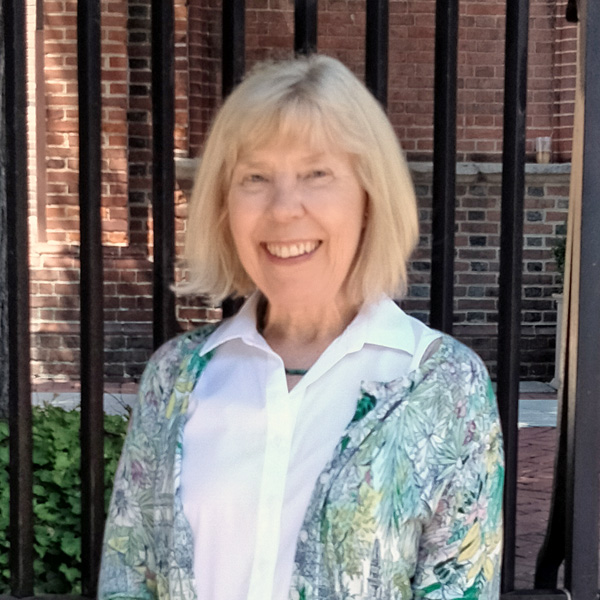 Carol W. Smith, archivist for Christ Church Preservation Trust, is the 2022 recipient of the Sister M. Claude Lane, O.P., Memorial Award given by the Society of American Archivists (SAA) in conjunction with the Society of Southwest Archivists. The award honors an archivist who has made a significant contribution to the field of religious archives.
Carol W. Smith, archivist for Christ Church Preservation Trust, is the 2022 recipient of the Sister M. Claude Lane, O.P., Memorial Award given by the Society of American Archivists (SAA) in conjunction with the Society of Southwest Archivists. The award honors an archivist who has made a significant contribution to the field of religious archives.
During her years working as a religious archivist, Smith spearheaded the Philadelphia Historic Congregations Project and received funding from CLIR, the Council for Libraries and Information Research (funded by the Andrew W. Mellon Foundation), as well as the Pennsylvania Historical Museum Commission and the Connelly Foundation to digitize or harvest more than 85,000 documents across seventeen Philadelphia congregations. More records will continue to be uploaded. The resulting portal provides insight into the relationship between religion and politics while also providing greater access to invaluable documents. Many of these “hidden” documents have not had sufficient description, and this project significantly improves accessibility.
Smith has been an outstanding member of the archival profession. As one supporter has written, Smith “is a dedicated person who works with several other organizations to make sure that their archives are kept in pristine condition for future generations.” In addition, the supporter notes that because of Smith’s dedication, the Philadelphia Historic Congregations Project is “collaboration at its finest—among congregations and among constituencies. To say these records are a treasure trove for future scholars is scarcely adequate.”
Created in 1974, the award honors Sister M. Claude Lane, O.P., a Dominican nun who was the first professionally trained archivist at the Catholic Archives of Texas in Austin. Past recipients include Mary Grace Kosta (Sisters of St. Joseph in Canada), Ellen Pierce (Dominican Sisters and other religious congregations), and Jillian Ewalt (University of Dayton).
Spotlight Award: Georgina Tom
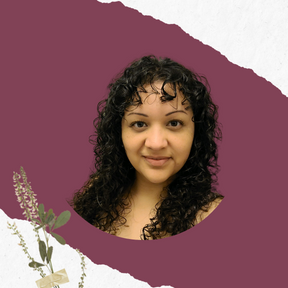
Georgina Tom, archivist at the 'Iolani School in Honolulu, Hawai‘i, is the 2022 recipient of the Spotlight Award from the Society of American Archivists (SAA). The award recognizes the contributions of individuals who work for the good of the profession and archival collections—work that does not typically receive public recognition.
Serving as archivist since 2014, Tom’s advocacy has transformed the Archives of 'Iolani School, a K–12 boarding and day school. Under her leadership, the archivist position increased to a full-time role. She implemented a content management system, established organization based on archival principles and standards, and expanded digital access to collections. Tom also advocated for the integration of archival materials into the school’s curriculum and now partners with faculty to provide classroom-based primary source instruction. Her nominator notes: “She sees the potential of memory and heritage collections as agents of social change by providing meaningful primary source experiences during the critical character and values building years of childhood.” Writing to 'Iolani faculty, Tom commented, “Primary source documents can be powerful partners as we educate young minds not to dismiss, minimize, or justify issues as being the way things are/were, but to identify and critique inequality and injustice.”
Tom’s advocacy work extends beyond 'Iolani School and is making a difference within SAA and in the professional development of her archival colleagues in Hawai‘i. Due to their remote location, archivists in Hawai‘i are often challenged to find and afford professional development opportunities. Responding to this need, Tom became a SAA Digital Archives Specialist (DAS) instructor for course offerings in Hawai‘i. As a member of the SAA DAS Subcommittee, Tom successfully advocated for the removal of an in-person course requirement for DAS certification. The SAA Awards Committee was impressed by Tom’s dedication to both 'Iolani School and her colleagues in Hawai’i and other remote locations.
Established in 2015, past recipients of the Spotlight Award include Lee Price (fundraising professional for cultural institutions), Michelle Ganz (McDonough Innovation), Kelli Luchs (Las Vegas News Bureau), and Ilana Short (Nevada State Museum).
Waldo Gifford Leland Award: Jason Lustig
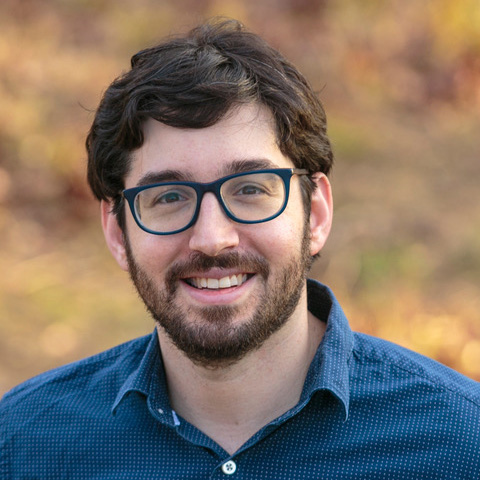
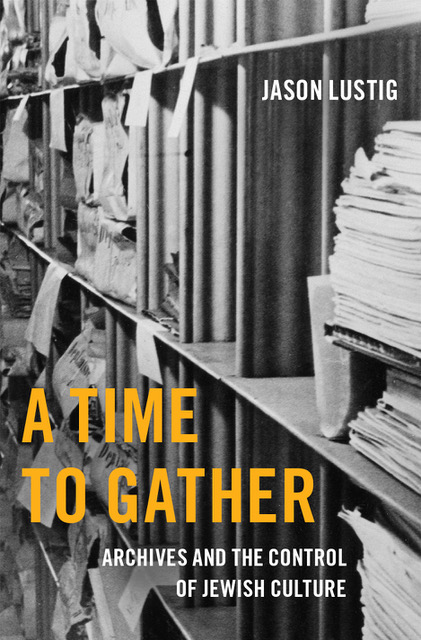
Jason Lustig, former lecturer and Israel Institute Teaching Fellow at the Schusterman Center for Jewish Studies at the University of Texas at Austin, is the 2022 recipient of the Waldo Gifford Leland Award given by the Society of American Archivists (SAA) for his book A Time to Gather, published by Oxford University Press in 2021. The award is given for writing of superior excellence and usefulness in the fields of archival history, theory, and practice.
In his book, Lustig presents a well-written, richly detailed, and superbly researched transnational study of the development of Jewish community archives in Germany, the United States, and Israel in the twentieth century. The book examines archival practices on a global scale, as well as a local one, examining archives in specific locales like Worms and Hamburg (Germany), Cincinnati (the US), and Jerusalem (Israel). The combination of a global and regional approach brings together a wide range of histories and historical contexts to tell a broad story about how community archives shape history.
A Time to Gather excels at making the case for why archives of all kinds, including community-based archives, can be and remain contentious. Lustig’s detailed study of the development of archives in modern Jewish culture in the twentieth century demonstrates how archives are not neutral and how archivists control the historical narrative. The book uncovers new ways to regard the work of many twentieth century archivists, offering “a new nuance to our understanding of archival history in the context of Jewish history.” One reviewer writes, “Lustig is an engrossing story-teller, and his book is well-written and compelling.”
Established in 1959, the Waldo Gifford Leland Award is named for one of North America’s archival pioneers and SAA’s second president. Past recipients include Cheryl Oestreicher for Reference and Access for Archives and Manuscripts, Jean-Christophe Cloutier for Shadow Archives: The Lifecycles of African American Literature, and Trevor Owens for The Theory and Craft of Digital Preservation.